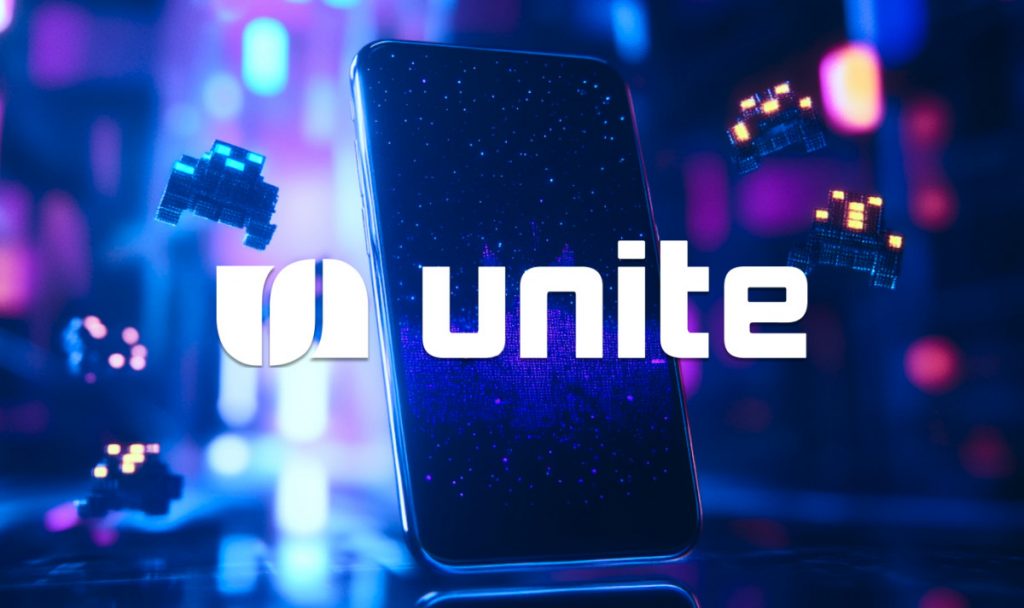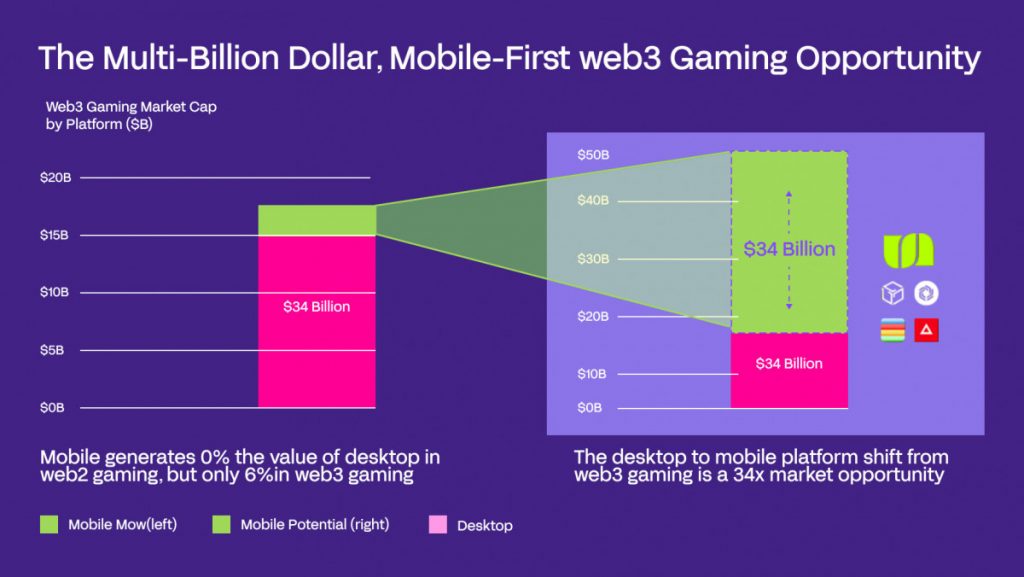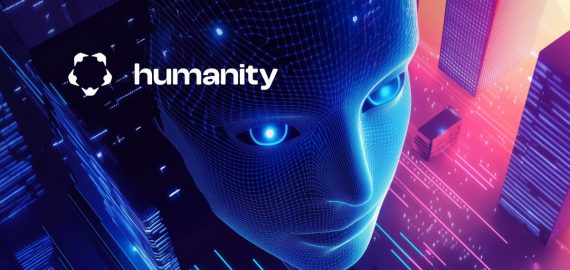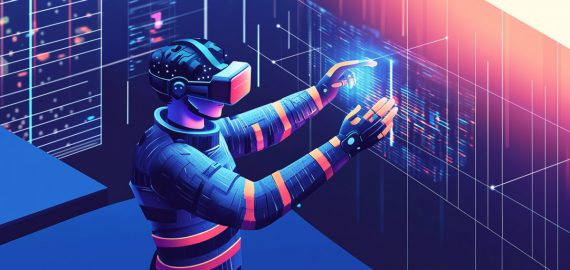Beyond High Scores: Web3 Mobile Games Promise True Ownership in a Digital Playground


In Brief
The mobile gaming industry, estimated to be 7 billion globally, generates $350 billion in income annually, with 85% coming from mobile gaming. This shift is attributed to shifting consumer tastes and accessibility.

We must first recognize the enormous size of the mobile gaming industry in order to fully appreciate the potential of Web3 mobile games. The Unite Blockchain has its own vision on the state of Web3 mobile gaming; according to them, the number of people who own mobile devices globally is estimated to be 7 billion, much exceeding the number of people who own desktop computers, which is roughly 2 billion. Due in large part to this large user base, mobile applications generate $350 billion in income yearly, of which 85% comes from mobile gaming.
With the mobile gaming market expected to be more than twice as large as that of the PC, it is evident that mobile gaming has become the dominant form of gaming. This change is a reflection of shifting consumer tastes as well as the accessibility of mobile devices, which let consumers play games at any time they choose.

Web3 Gaming: An Emerging Market
Web3 gaming, especially in the mobile sector, is still in its infancy as compared to the established mobile gaming business. Web3 mobile games now have a market capitalization of about $1 billion, which is far less than the $15 billion that Web3 PC games are valued at. This discrepancy indicates a large development potential; estimations show that Web3 mobile games might grow by a factor of 34 to match the mobile-to-PC ratio observed in traditional gaming.
The Benefits of Gaming and Blockchain Combo
Games have a number of intrinsic qualities that make them ideally suited to gain from blockchain integration. A key element of gaming economies for a long time, in-game assets are excellent candidates for tokenization. Games may provide players with actual ownership and transferability by representing these assets as NFTs on a ledger, possibly resulting in the creation of new economic models and income sources.
Games’ interactive elements fit in nicely with the Web3 concept of user ownership and involvement. The “read-write-own” model is completed by Web3, which adds the idea of ownership to the multiple Web2 platforms that enable users to write and view stuff. This idea is organically embodied in games, as players actively participate in the experience and frequently have a sense of ownership over their accomplishments.
Decentralized and Community-Based Governance
The enthusiasm and involvement of gaming communities are characteristics that lend themselves nicely to DAO structures. Through modding, community administration, and even production, many gamer groups already make major contributions to game ecosystems. Game economies may become more resilient and long-lasting if Web3 technology were to codify and reward their efforts.
The notion of emerging diversity in games is also consistent with the interoperability principles of blockchain technology. The possibility of cross-game activities and economies increases with game connectivity, potentially resulting in the creation of complex, player-driven ecosystems that go beyond individual titles.
Alignment of Demographics
There is a clear correlation between the gaming community’s demographics and those linked to the adoption of blockchain and cryptocurrencies. Both businesses tend to target young, tech-savvy men as their core market, but it’s crucial to remember that they are actively trying to reach a wider audience.
Fascinatingly, developing countries with growing middle classes have similar levels of popularity for mobile gaming and bitcoin adoption. Both industries are expanding rapidly in nations including Argentina, Nigeria, Vietnam, Turkey, India, and Vietnam. There are other possible explanations for this association, such as:
1. Raising disposable income to enable investments in leisure activities and budgeting;
2. A more open environment for alternative financial systems due to the reduced infrastructure provided by conventional banks;
3. Low-end desktop computer infrastructure combined with high smartphone adoption rates.
These demographic patterns indicate that economies that are already well-suited for the adoption of blockchain technology and mobile gaming might provide a welcoming environment for Web3 mobile games.
The Path Forward for Web3 Gaming
In order for Web3 mobile games to live up to their full potential, platforms, and developers must concentrate on crafting engaging user experiences that meaningfully utilize blockchain technology. This may entail:
- Creating novel gaming mechanisms that seamlessly integrate blockchain components without coming off as gimmicky or forced;
- Developing cooperative assets and cross-game economies that provide value to games beyond their original releases;
- Putting in place transaction and wallet mechanisms that are easy to use and abstract away the intricacies of blockchain interactions;
- Promoting vibrant, involved communities that may influence game design and administration;
- Proactively addressing regulatory issues to guarantee adherence and foster confidence between authorities and users.
Publishers and creators of well-known games stand to gain from the incorporation of Web3 technology into mobile games. Traditional gaming firms might benefit from new revenue sources and innovative ways to interact with their communities by using blockchain technology. However, this shift will necessitate carefully weighing how to maintain the decentralized features of Web3 while integrating current commercial structures.
The uptake of Web3 mobile gaming will be greatly influenced by education. Many potential consumers could be reluctant to interact with cryptocurrencies or inexperienced with blockchain principles. It will be necessary for platforms and game developers to make investments in user education and to give clear, understandable information about the advantages and disadvantages of Web3 gaming.
The use of Web3 technology may potentially result in more persistent and immersive gaming environments. Players will be able to transfer their achievements and assets between games and platforms via blockchain-based ownership and interoperability, which would provide for a more individualized and social gaming experience.
There could be more far-reaching effects on the digital economy from the growth of Web3 mobile gaming. This habit may spread to other industries as players grow more at ease with possessing and exchanging digital assets through games, which stimulates the adoption of blockchain in online sales, networking sites, and other digital platforms.
Disclaimer
In line with the Trust Project guidelines, please note that the information provided on this page is not intended to be and should not be interpreted as legal, tax, investment, financial, or any other form of advice. It is important to only invest what you can afford to lose and to seek independent financial advice if you have any doubts. For further information, we suggest referring to the terms and conditions as well as the help and support pages provided by the issuer or advertiser. MetaversePost is committed to accurate, unbiased reporting, but market conditions are subject to change without notice.
About The Author
Victoria is a writer on a variety of technology topics including Web3.0, AI and cryptocurrencies. Her extensive experience allows her to write insightful articles for the wider audience.
More articles

Victoria is a writer on a variety of technology topics including Web3.0, AI and cryptocurrencies. Her extensive experience allows her to write insightful articles for the wider audience.


















































